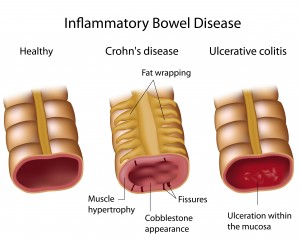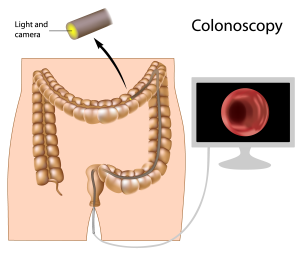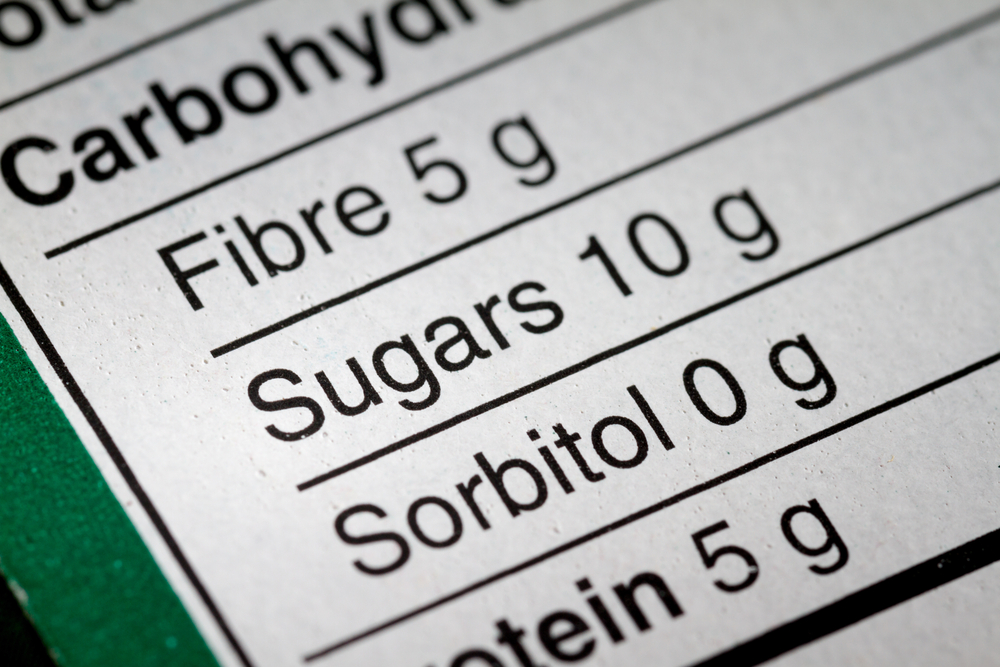An ulcer is a sore on the skin or mucous membrane, which forms the top layers of the skin or tissue. It can occur in the mouth, stomach, and other parts of the body. When ulcers occur in the lining of the upper part of the gastrointestinal (GI) tract, it is known as gastric ulcers and if ulcer are formed in the first part of the small intestine, then it is referred as duodenal or peptic ulcer. Moreover, ulcerative colitis is a form of inflammatory bowel disease (IBD), which is a disease of the colon (largest portion of the large intestine). Constant diarrhea mixed with blood is the most common symptom of developing ulcerative colitis.
Understanding and detailing ulcerative colitis:
 Estimated 10–12 cases out of 100,000 people per year in North America suffer from ulcerative colitis and it has been proved in various researches that ulcerative colitis usually occurs between the ages of 15 and 25. But, there is no clear evidence that the stress of modern life or dependence on fast food causes ulcers in the stomach.
Estimated 10–12 cases out of 100,000 people per year in North America suffer from ulcerative colitis and it has been proved in various researches that ulcerative colitis usually occurs between the ages of 15 and 25. But, there is no clear evidence that the stress of modern life or dependence on fast food causes ulcers in the stomach.
Ulcerative colitis is a disease of the large intestine (colon), which is a chronic disease, related to the condition of inflammation of the intestines called Crohn’s disease. Both the diseases together are referred to as inflammatory bowel disease (IBD), that last for years or even decades. As published in a U.S. report, both men and women get affected equally by this disease. Basically, ulcerative colitis is found worldwide and is most common in the United States, England, and Northern Europe. As per the reports, ulcerative colitis is rarely seen in Eastern Europe, South America, and Asia.
What are the causes of ulcerative colitis?
Research has proved that there is no such cause of this disease. Certain factors that may cause ulcerative colitis are mentioned below:
- Autoimmune condition- Basically, the immune system is the body’s defense against infection and many experts believe ulcerative colitis as an autoimmune condition in which the immune system mistakenly attacks healthy tissues, results in inflammation.
- Genetic factors– Inherited genes are the most common factors in the development of ulcerative colitis. Studies have shown that more than one in every four people with ulcerative colitis has a family history.
- Stress– Stress is often the cause of many diseases, same in the case of ulcerative colitis. In such cases, your body secretes hormones like adrenalin, which stimulates the immune system and triggers inflammation.
- Environmental factors- Environmental factors trigger various diseases and problems. Your chance of developing ulcerative colitis is based on environmental and behavioral factors. Northern parts of Western Europe and America are the most affected areas by ulcerative colitis. Moreover, environmental factors like air pollution and certain diets including poor nutrition (lack of vitamin d) are one of the leading causes.
Symptoms of ulcerative colitis:
The seriousness of the symptoms varies from person to person and about 50 percent of people diagnosed with ulcerative colitis possess mild symptoms. Abdominal pain or cramping, rectal bleeding and diarrhea, fatigue, loss of appetite, weight loss, and anemia are some of the common symptoms found in the people with ulcerative colitis. Some of the additional symptoms include joint pain, liver problems, joint swelling and mouth sores.
Complications of ulcerative colitis:
Complications are involved in every disease but people with ulcerative colitis may develop the below mentioned complications:
- Severe bleeding or dehydration
- Hole in the colon
- Liver disease (in extremely rare cases)
- Osteoporosis
- A rapidly swelling colon (toxic megacolon)
- Kidney stones
- Inflammation of skin, joints and eyes
If you suspect that you have ulcerative colitis then rush to your doctor, he will refer you to a gastroenterologist, who will perform certain tests to diagnose the problem. Following are some of the diagnostic tests:
- Blood tests- To diagnose the disease, the doctor may take blood tests from the suspect’s body to check for anemia or other infections. Blood tests are performed by the doctor to check the presence of certain antibodies, which can help in diagnosing what type of inflammatory bowel disease you have.
- Stool sample- Stool sample helps in ruling out other disorders, such as those caused by bacteria, viruses and parasites. Basically, the presence of white blood cells in stool indicates an inflammatory disease, probably ulcerative colitis.
- X-ray– X-ray of the abdominal part may be performed by the doctor to rule out the possibilities of toxic perforation because these conditions are caused due to severe symptoms.
- CT scan- A CT scan of the abdomen or pelvis shows if the condition is ulcerative colitis or inflammation of the small intestine that might suggest Crohn’s disease. Furthermore, CT scan also reveals how much of the colon is inflamed.
 Colonoscopy- In this exam, the doctor views the entire colon of the patient using a thin, flexible, lighted tube which is attached with a camera. During the test, the doctor can also take small samples of tissue called biopsy, for laboratory analysis because sometimes these help in confirming a diagnosis.
Colonoscopy- In this exam, the doctor views the entire colon of the patient using a thin, flexible, lighted tube which is attached with a camera. During the test, the doctor can also take small samples of tissue called biopsy, for laboratory analysis because sometimes these help in confirming a diagnosis.- Endoscopy- The best test for diagnosing ulcerative colitis is endoscopy. In this test, colonoscopy is attempted only if diagnosis of ulcerative colitis is unclear. Endoscopic findings in ulcerative colitis include loss of vascular appearance of the colon and superficial ulceration, which may be confluent.Also Read: Arthritis- Types, Symptoms and Treatment
Treatment of ulcerative colitis:
To treat the ulcerative colitis, drug therapy or surgery is preferred by the doctor. Basically, doctors make use of several drugs to control inflammation in different ways. But drugs or medications that work well for some people may not work for others. Below are various treatment options available:
Anti-inflammatory drugs:
These drugs are the initial medications provided in the treatment of inflammatory bowel disease, which include:
- Sulfasalazine (Azulfidine)– This medicine is highly effective in reducing symptoms of ulcerative colitis along with a number of side effects such as nausea, heartburn, vomiting, diarrhea, and headache.
- Corticosteroids– Doctors generally prefer corticosteroids if the patient has moderate to severe inflammatory bowel disease that doesn’t respond to other treatments. These medicines have numerous side effects, including excessive facial hair, mood swings, weight gain, high blood pressure, and type 2 diabetes.
Immune system suppressors:
These drugs help in reducing colon inflammation by targeting the immune system rather than treating inflammation itself. Immuno-suppressant drugs include:
- Cyclosporine–This drug is ideal for people who don’t respond to other medications. In some cases, this drug may be used to delay surgery until you’re strong enough to undergo the procedure. Cyclosporine’s effects effect last for one to two weeks. Possible side effects of this drug are kidney damage, seizures and fatal infections. So, without recommendation of your doctor, don’t ever try to go with this medicine.
- Infliximab (Remicade)– People with moderate to severe ulcerative colitis who don’t respond to other treatments generally recommend Infliximab. This drug works by neutralizing a protein produced by the immune system known as tumor necrosis factor (TNF).
Surgery:
If drug therapies and other treatments don’t work, then your doctor may recommend surgery to eliminate ulcerative colitis. In surgery to remove or eliminate ulcerative colitis, doctors first remove the entire colon and rectum, then after surgery the patient have to wear a small bag over an opening in his/her abdomen to collect stool.
If you find this article useful, then please share it on your social accounts. And, do comment below and tell us what your health queries are.
Also See: Hot to tackle heart diseases – The warning signs and healthy diet tips
Get useful health tips and remedies regularly, on your Facebook feed.


